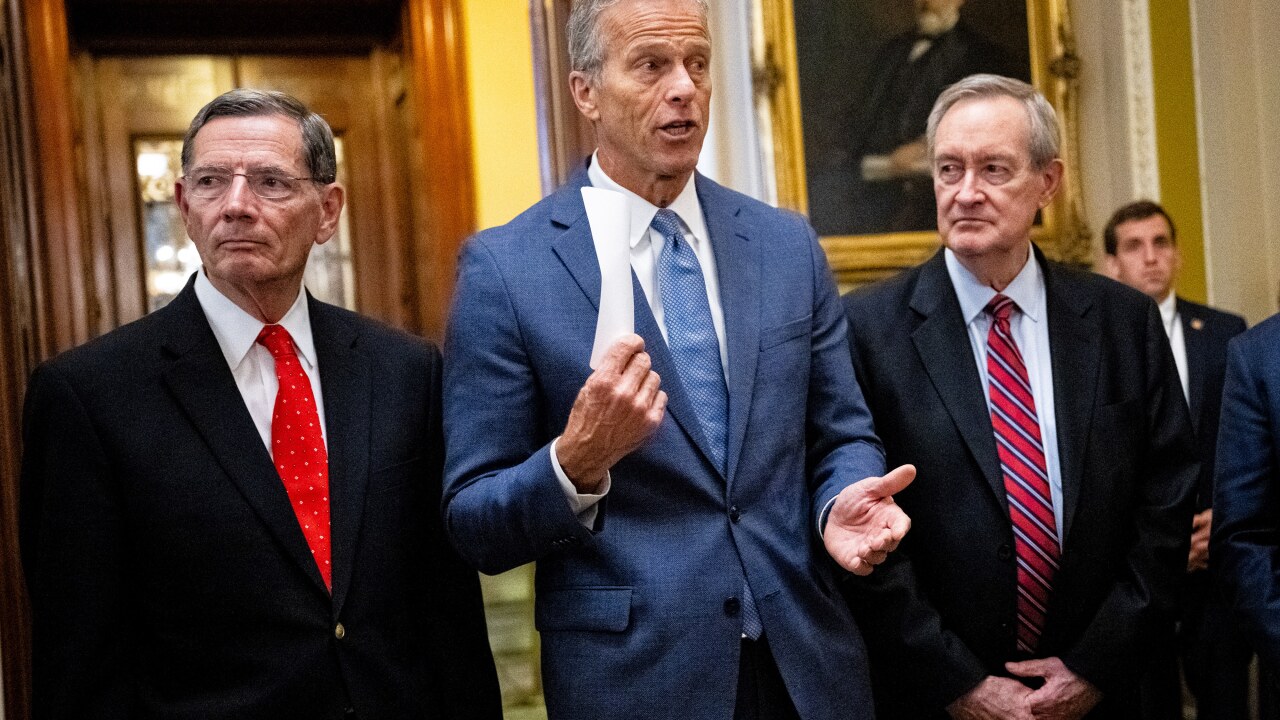WASHINGTON — Federal Reserve Board Chairman Ben Bernanke said nationalizing banks would be a mistake, drawing distinction Wednesday between his position and comments made this week by his predecessor, Alan Greenspan.
In a speech to the National Press Club, the current Fed chief also defended his role in determining which institutions have been saved by the government and which have been allowed to fail.
In contrast with Mr. Greenspan's comment this week that "nationalization could be the least bad option," Mr. Bernanke said it was untenable.
"As a general rule, it's very challenging for governments to manage banks for protracted periods," he said in answer to a question. "An additional problem when you have a government running an institution is that you begin to lose the franchise value, so that the counterparties and others don't want to deal with you, because they don't know the future."
Noting that the government already has a big stake in a number of large financial institutions, Mr. Bernanke said, "I think there is a very strong commitment on the part of the administration to try and return banks to private hands as quickly as possible."
Regarding the Treasury Department's stress-test plan for gauging the health of banks, Mr. Bernanke said Secretary Tim Geithner would design the details.
However, "what we want to do is assure ourselves that under stress conditions, conditions worse than the current conditions, that banks have adequate capital, adequate capital not only to be stable, but also to lend and complete economic recovery," Mr. Bernanke said. "So in this first stage, the analysis of the stress test … [will be] diagnostic to figure out what's needed."
Fed chairmen rarely open themselves up to the sort of free-for-all questioning that accompanies a National Press Club speech, and Mr. Bernanke was grilled about everything from a December conversation with Kenneth Lewis, Bank of America Corp.'s chief executive, to why Lehman Brothers was allowed to fail.
B of A's deal for Merrill Lynch & Co. Inc. was too far along to pull the plug, Mr. Bernanke said. "There was very little time left. We did not see any realistic legal ways [for B of A] to break the deal."
In addition, scuttling the deal could have further destabilized fragile markets, he said.
When asked whether not saving Lehman was a mistake, Mr. Bernanke took issue with the tone of the question, saying the word "mistake" implies there was a "choice or option."
There was no buyer, and the $700 billion Troubled Asset Relief Program had not yet been created, he said, so there was no way regulators could prevent Lehman's collapse. "We did everything we possibly could to prevent the failure of Lehman Brothers. I have said from the very beginning of this crisis that is essential not to let large, systemically important institutions fail, and in the beginning when we helped Bear Stearns, … Congress and many others said, 'Let it fail.' … And I think we knew better than that," Mr. Bernanke said.
"We made every possible effort. Unfortunately, the situation with Lehman was neither like Bears Stearns nor AIG. In the case of Bear Stearns, we had an acquirer. … In the case of Lehman, we had some interest … but in the end, no buyer was available."
In addition, "we need to address the issue of 'too big to fail,' which is a major problem," he said. "One way to do that is to allow a resolution regime that allows the government to come in and be able to deal with it in a systematic way."
Mr. Bernanke reiterated the need for policymakers to address the failure of systemically important institutions, and continued to tout the Fed's emergency efforts to pump liquidity into the system.





